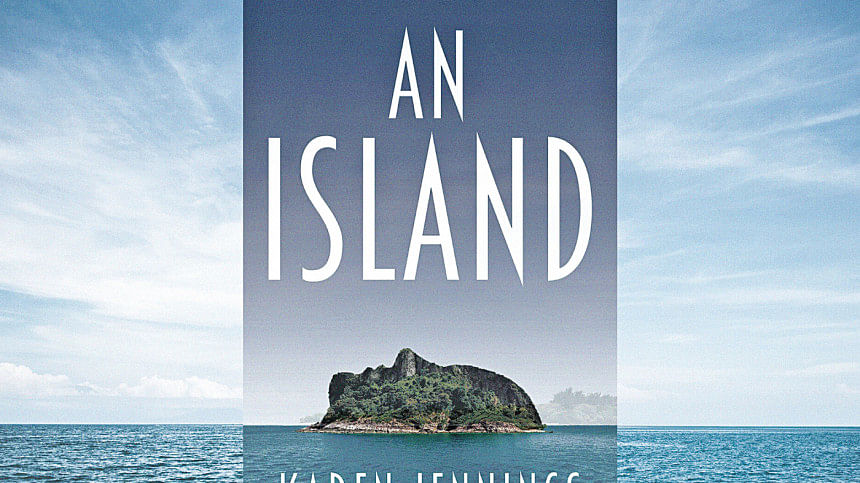An island of one’s own

When one begins reading Karen Jennings' An Island (Picador India, 2021), one might find it hard to believe that an atmospheric novel with such fluid prose initially struggled to find a publisher. Even when it did manage to grab the attention of Holland House, a small independent press, only 500 copies were printed owing to the pandemic. The book could not take flight as no one championed it via endorsement blurbs. But this—the publishing industry's unforgiving landscape—is a topic for another day.
We meet Samuel as he discovers an oil drum and a seemingly dead man on the pebbly shore thrumming with the sounds of gulls. In the 23 years that he has been a lighthouse keeper on the uninhabited, unnamed island, such an incident is common. Until now, he has buried 32 bodies that have washed ashore. This particular man, however, is not dead. Samuel soon discovers that he is a lucky refugee who has managed to survive a boat capsize. His arrival lands a deafening blow on Samuel's undisturbed solitude. He simply cannot wrap his head around the fact that he is to share the island with another human being. "Was it to be this? This breath, this pulse, this youth, this life, taking over the small cottage, seeping into the floor and the walls."
The man becomes the ultimate moral dilemma for Samuel as he vacillates between accepting him and turning him over to the country's authority, which the man seems to fear the most. Should Samuel be a selfish human being and preserve the fact of his solitary condition on the island? Or should he accept the new reality of co-inhabiting? We wait until the last page to find out.
The discovery of an answer to these questions is what forms the skeleton of Jennings's story, longlisted for this year's Booker Prize nominations. From a distance, it might seem like such a light premise—yet heavy in its character's ethical considerations—cannot become a novel. A novella, perhaps. But because of Jennings' attention to detail and memory, the story is sustained through 182 suspenseful pages.
Samuel is a complex character. Sometimes, he is likeable, for his habit of carefully burying the dead and keeping them protected with stones and boulders so that hungry gulls cannot gnaw at their bodies. Other times, one cannot stop looking down on him for rejecting chances of redemption, for being a part of communal tension, for being a selfish revolutionary blinded by utopian zeal, among other things. Initially, he is polite with the refugee, despite speaking in feeble signs due to their language barrier. As the story threads on, tension descends upon the island because of a series of dangerous miscommunications among them, and with each passing second, Samuel is made more aware of the walls of his solitude cracking. "Inside him something small and folded began to shift. It opened outwards, growing ever larger…..Until he was brittle and creaking with it."
The most brilliant aspect of this novel is how, through his regular interactions with the man, Samuel's past life bursts forth from the depths of his memory, triggered by windows, keys, doors, the man's behaviour, and so on. In the process, we get to see a version of Samuel who has had to deal with harsh circumstances that have turned him so resolutely towards solitude.
Also through those circumstances, an unnamed African country stretches before us, one that first overflowed with hope when independence arrived and eventually became muddied with the rise of dictatorship and deviant nationalism. The ghostly shadows of colonialism, inequality, poverty, heady optimism, and hard realities echo from Samuel's past. This bears a dynamic impact on one's reading experience—I felt calm while reading the passages set on the island, and I felt suffocated (though not in a bad way) with despair while coursing through Samuel's past—marked by lots of begging and torture in prison cells, among other things. The result: not one page is likely to stall you with boredom and dullness.
Haunting in a way that a fable does, The Island reveals, through clever pieces of symbolism, the prejudices that govern migrants' lives, the dangers of solitude, and the vicious cycle and forceful inheritance of violence.
Shah Tazrian Ashrafi is a contributor.

 For all latest news, follow The Daily Star's Google News channel.
For all latest news, follow The Daily Star's Google News channel. 



Comments